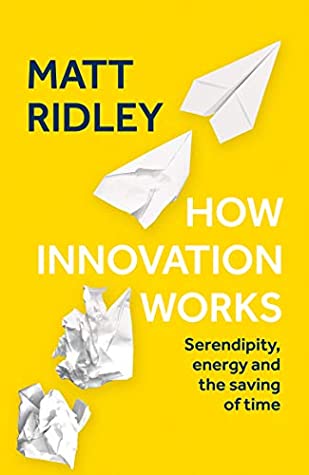More on this book
Community
Kindle Notes & Highlights
by
Matt Ridley
Read between
August 31 - September 20, 2020
If innovation transforms the productivity of labour in manufacturing, then that will drive up salaries throughout the economy, making services more expensive. In 1995, in Germany, a flat-screen television cost about the same as a hip replacement. Fifteen years later, you could get ten flat-screen televisions for the cost of a hip replacement. The salaries of surgeons had increased because of the general increase in the productivity of the economy, but surgeons’ own productivity had not increased much, if at all. Thus, allowing innovation only in one sector can be a problem.
Innovation is one of those things that everybody favours in general, and everybody finds a reason to be against in particular cases. Far from being welcomed and encouraged, innovators have to struggle against the vested interests of incumbents, the cautious conservatism of human psychology, the profitability of protest...
This highlight has been truncated due to consecutive passage length restrictions.
Medical innovation will surely make it possible to live better lives into old age, with senolytic drugs, robotic keyhole surgery, stem-cell treatment and gene-edited cancer treatments, to name but a handful of possibilities.
Gene editing could have enabled us to bring back the dodo and the mammoth, and gene-edited crops could have made agriculture so productive that it will need far less land, thus enabling us to provide these dodos and mammoths and other species with large new national parks in which to live.
Schumpeter’s ‘perennial gale of creative destruction’ has been replaced by the gentle breezes of rent-seeking.
Economists such as Tyler Cowan and Robert Gordon have likewise argued that we are no longer inventing things that really change the world, like toilets and cars, but increasingly playing with trivia like social media.
Just as in Ming China, Abbasid Arabia, Byzantium and Ashokan India before them, these mature civilizations lose the innovation bug and pass the buck.
India’s innovation is accelerating noticeably, with technologies like the use of biometric identification, using fingerprints and irises, for welfare payments and banking already showing signs of leapfrogging both the West and China. India’s drug industry is rapidly moving from generics to innovative medicines.
‘I tell you genius is hard work,’ he added, ‘stick-to-it-iveness, and common sense.’


